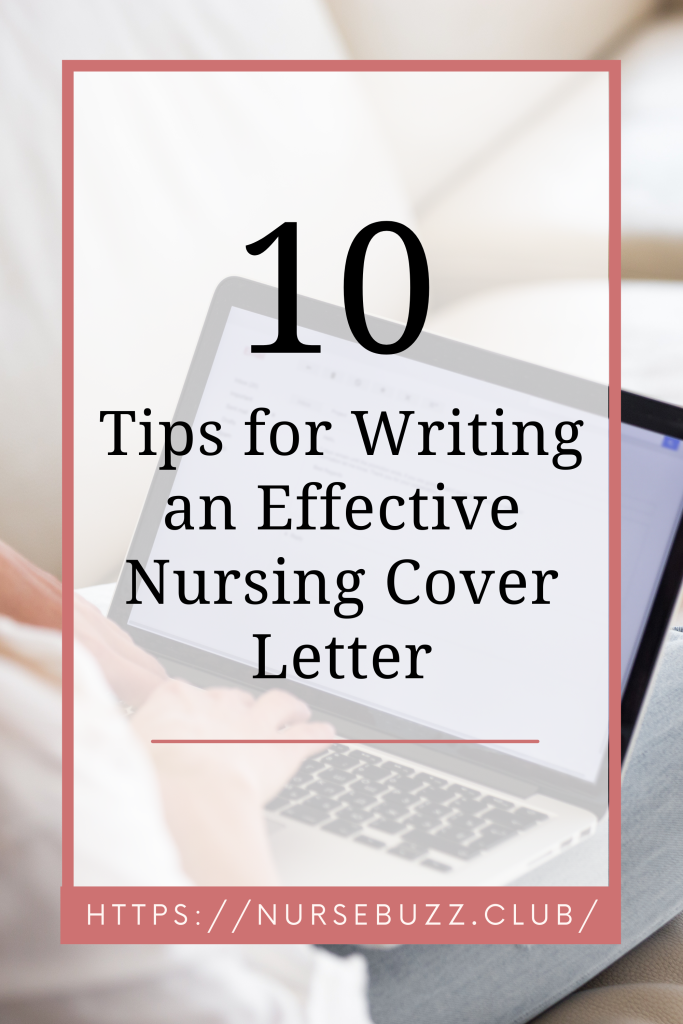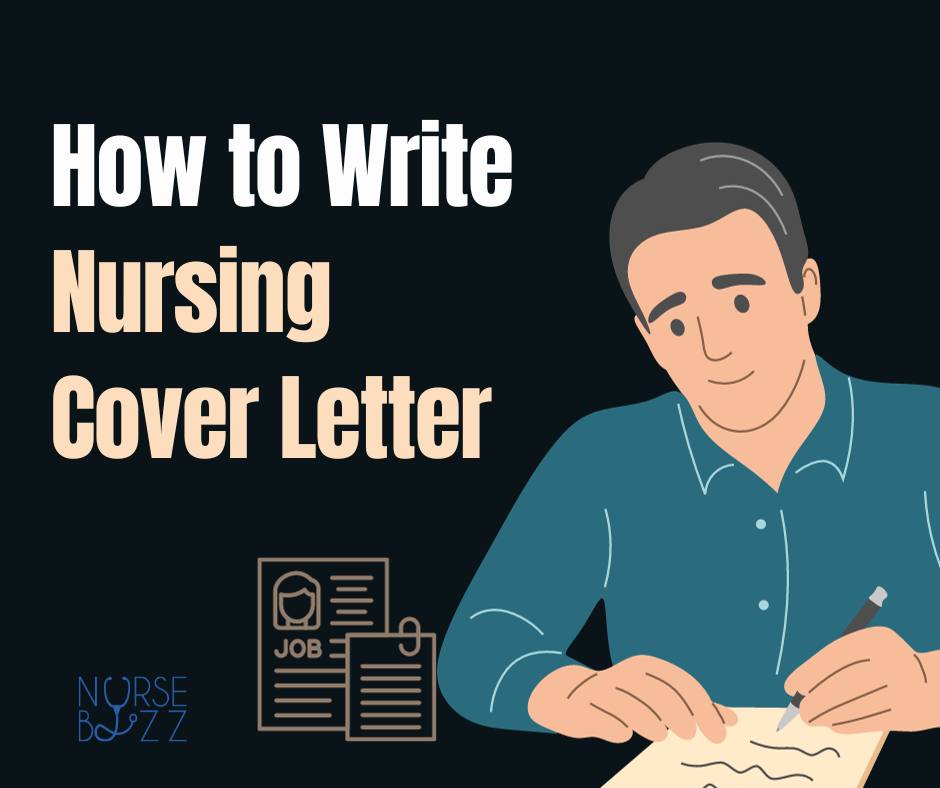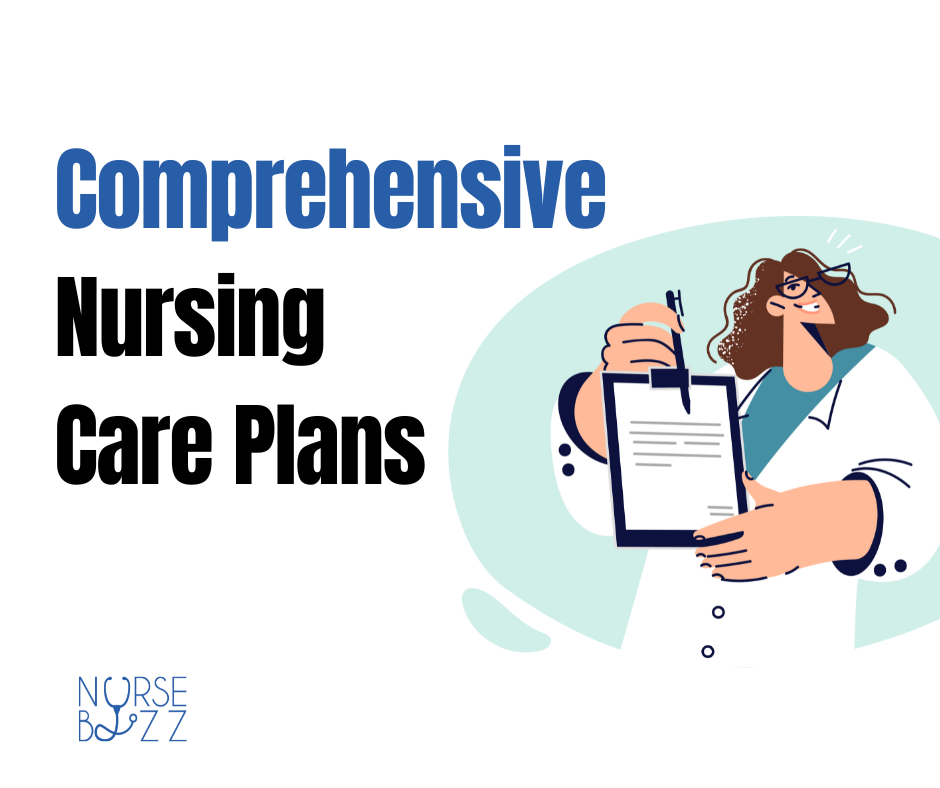Discover essential tips and tricks for creating a standout nursing cover letter. Get started on the path to your nursing career today.
Welcome to our guide on crafting a winning nursing cover letter. In the competitive world of healthcare, your cover letter can be your ticket to landing that dream job. This comprehensive guide will walk you through the essential steps, provide nurse cover letter examples, and offer valuable tips to ensure your application stands out.
1. Purpose and Importance of a Nursing Cover Letter
A good nursing cover letter is your essential tool to secure a nursing position. It goes beyond formality, serving as a platform to showcase your qualifications and make a compelling case for why you are the ideal candidate.
- Complementing Your Resume: While your resume provides an overview of your background and achievements, the cover letter adds a personal touch, allowing you to express enthusiasm for the position.
- Making a Memorable Impression: Think of your cover letter as a first handshake with potential employers. It’s a chance to stand out, spark interest, and encourage deeper review of your application.
- Demonstrating Your Qualifications: The cover letter lets you delve into your unique skills, experiences, and accomplishments that make you a valuable asset to the healthcare team.
- Conveying Your Passion for Nursing: Communicate your dedication and genuine desire to contribute to patients’ well-being, a highly valued trait in the healthcare field.
- Customizing Your Application: Personalize your cover letter to the specific position and employer, demonstrating your commitment and genuine interest in the opportunity.

2. Steps to Write Nursing Cover Letters
Crafting a compelling nurse cover letter example involves a structured approach to guarantee that you adeptly communicate your qualifications, experience, and passion for the profession. Follow these essential steps to create a good nursing cover letter that makes a positive impact on potential employers:
1. Research and Preparation
Before crafting your nurse cover letter, research the prospective employer and the specific job role. This vital step allows you to tailor your cover letter to the facility’s unique requirements and culture.
- Explore the Employer: Investigate the healthcare facility’s website, mission, values, and recent initiatives. Understanding their background and values helps align your cover letter with their objectives, demonstrating your genuine interest.
- Review Job Posting: Carefully examine the job posting, noting the qualifications and skills the employer seeks. Be attentive to any specific application instructions.
- Prioritize Targeted Letters: Resist the urge to use a generic cover letter for multiple applications. Opt for a tailored approach, crafting a unique cover letter for each application that addresses the employer’s needs and aligns with the position.
2. Structuring Your Cover Letter

The structure of your nurse cover letter example is crucial for a clear and organized presentation. Here’s the basic format to follow:
- Header and Contact Information: Place your name, address, phone number, and email address at the document’s header.
- Salutation: Whenever feasible, address the hiring manager or recruiter by their name.
- Opening Paragraph: In the opening paragraph, express your enthusiasm for the position and briefly introduce yourself. Mention how you learned about the job opening.
- Body Paragraphs: The body of your cover letter should consist of two to three paragraphs where you focus on specific qualifications, experiences, and accomplishments that are relevant to the job. Use this space to explain why you’re the right candidate.
- Closing Paragraph: Conclude your cover letter with a strong closing statement. Express your eagerness for an interview and thank the reader for considering your application.
- Complimentary Close and Signature: Use a professional closing like “Sincerely” or “Best regards,” followed by your signature. If it’s a digital submission, you can type your full name.
3. Nurse Cover Letter Examples
To gain a better understanding of how to apply these steps effectively, let’s explore a few nurse cover letter examples that showcase different scenarios:
Example 1: Experienced Nurse
[Your Name] [Your Address] [City, State, ZIP Code] [Your Email Address] [Your Phone Number] [Date]
[Employer’s Name] [Healthcare Facility Name] [Address] [City, State, ZIP Code]
Dear [Employer’s Name],
I am writing to express my strong interest in the [Job Title] position at [Healthcare Facility Name] as advertised on [Where You Found the Job Posting]. With [X years] of dedicated nursing experience, I am enthusiastic about the prospect of applying my skills and expertise to your renowned institution.
Throughout my career, I have had the privilege of working in diverse healthcare settings, including [mention specific settings such as hospitals, clinics, or other relevant facilities]. These experiences have equipped me with a comprehensive understanding of the healthcare industry, clinical best practices, and the ability to deliver high-quality patient care.
Some highlights of my qualifications include:
- Proven ability to provide compassionate and evidence-based care, ensuring the well-being and comfort of patients.
- Expertise in [mention specific nursing skills or specialties, e.g., critical care, surgical nursing, or pediatrics].
- Strong communication and collaboration skills, fostering effective interdisciplinary teamwork.
- Dedication to maintaining the highest standards of patient safety and adhering to all regulatory requirements.
- A track record of continuous professional development, including [mention any certifications or further education].
I am highly committed to delivering exceptional patient outcomes and fostering a supportive environment within the healthcare team. Your esteemed reputation for delivering exceptional patient care and your unwavering dedication to continual professional growth are in harmony with my career goals. I am eager to contribute my experience and skills to the dedicated team at [Healthcare Facility Name].
Enclosed is my resume, which provides further details on my educational background and work history. I welcome the opportunity to discuss how my qualifications align with your needs during an interview. Don’t hesitate to reach out to me at [Your Phone Number] or through email at [Your Email Address] to schedule a convenient meeting time.
Thank you for considering my application. I am eagerly anticipating the opportunity to make a valuable contribution to the outstanding care delivered by [Healthcare Facility Name].
Sincerely,
[Your Name]
Example 2: Recent Nursing Graduate
[Your Name] [Your Address] [City, State, ZIP Code] [Your Email Address] [Your Phone Number] [Date]
[Employer’s Name] [Healthcare Facility Name] [Address] [City, State, ZIP Code]
Dear [Employer’s Name],
I am writing to express my enthusiasm for the [Job Title] position at [Healthcare Facility Name] as advertised on [Where You Found the Job Posting]. As a recent nursing graduate from [Your Nursing School], I am eager to begin my career as a dedicated and compassionate member of your healthcare team.
Throughout my nursing education, I developed a strong foundation in clinical skills, patient care, and medical knowledge. I am excited to put my education and training into practice to make a meaningful difference in the lives of patients. Some of the key qualifications I bring include:
- A solid academic foundation in nursing principles, including [mention specific coursework or areas of expertise].
- Hands-on clinical experience in [mention specific clinical settings, e.g., medical-surgical, pediatrics, or obstetrics].
- Excellent communication and interpersonal skills, vital for building strong patient relationships.
- Proficiency in electronic health records (EHR) and medical documentation.
- A strong commitment to delivering compassionate, evidence-based care.
I am particularly drawn to [Healthcare Facility Name] because of your outstanding reputation for patient-centered care, commitment to staff development, and dedication to achieving the highest standards of healthcare. I am enthusiastic about the prospect of making a meaningful contribution to your team and experiencing professional growth in this dynamic setting.
Enclosed, you will find my resume, which provides further details about my educational background and clinical experiences. I am very interested in discussing how my qualifications align with your needs during an interview. You can reach me at [Your Phone Number] or via email at [Your Email Address] to schedule a convenient meeting time.
Thank you for considering my application. I look forward to the possibility of beginning my nursing career at [Healthcare Facility Name].
Sincerely,
[Your Name]
4. Tips for Crafting a Successful Nursing Cover Letter

Crafting a compelling nursing cover letter demands a strategic approach. Here are key tips to help you create a powerful nursing cover letter:
- Customize for the Job Tailor your cover letter to match the specific job’s requirements and reflect your fit with the facility.
- Highlight Relevant Qualifications Focus on your most pertinent qualifications and use real examples to demonstrate your competency.
- Keep It Concise Hiring managers have limited time. Maintain a three to four paragraph length for a clear, impactful message.
- Use Professional Language Maintain a formal tone to show your professionalism and respect for the position.
- Show Passion for Nursing Express your genuine dedication to nursing and your desire to make a difference in patients’ lives.
- Address the Employer’s Needs Demonstrate your understanding of the facility’s goals and how you can contribute to their mission.
- Include Measurable Achievements Highlight accomplishments with specific numbers and data to provide evidence of your impact.
- Proofread and Edit Review your cover letter carefully for grammar and spelling errors, and seek feedback from peers.
- Be Honest and Transparent Emphasize your genuine strengths and commitment without exaggerating or fabricating.
- Seek Professional Feedback Consider getting input from experienced nurses, mentors, or professors to refine your cover letter.
5. Mistakes to Avoid

While it’s crucial to know what makes a good nursing cover letter, it’s equally important to recognize common mistakes and avoid them at all costs. Here are some key mistakes to steer clear of when crafting your nursing cover letter:
1. Generic, One-Size-Fits-All Cover Letters
Mistake: Sending out the same cover letter for every job application, without customization.
Why It’s a Mistake: Employers can quickly spot generic cover letters. They are looking for evidence that you’ve invested the effort to customize your application to their particular requirements and that you have a sincere interest in their institution.
2. Overly Lengthy or Disorganized Content
Mistake: Writing a cover letter that’s too long, with excessive details or unorganized information.
Why It’s a Mistake: Long and cluttered cover letters can be overwhelming for busy hiring managers. They may not have the time to sift through lengthy narratives. Stick to a clear and concise format that highlights your key qualifications.
3. Failing to Address the Employer by Name
Mistake: Using generic salutations such as “To Whom It May Concern” or “Dear Sir/Madam.”
Why It’s a Mistake: Personalization matters. When you don’t address the employer by name, it can appear that you didn’t make the effort to research the facility or identify the right contact. It’s always best to find the hiring manager’s name.
4. Grammatical and Spelling Errors
Mistake: Submitting a cover letter with grammatical and spelling mistakes.
Why It’s a Mistake: Errors in your cover letter can leave a negative impression. Attention to detail is essential in nursing, and such mistakes can suggest a lack of care and professionalism.
5. Neglecting to Mention Patient-Centered Care
Mistake: Failing to emphasize your commitment to patient-centered care.
Why It’s a Mistake: Patient-centered care is at the core of nursing. Not addressing your dedication to this principle can make you appear disconnected from the essence of the profession.
6. Disregarding Facility’s Values and Mission
Mistake: Not aligning your values and goals with those of the healthcare facility.
Why It’s a Mistake: Healthcare institutions often prioritize candidates who resonate with their mission and values. Ignoring these can signal a lack of cultural fit.
7. Using Jargon or Unexplained Acronyms
Mistake: Overusing nursing-specific jargon or acronyms without explaining them.
Why It’s a Mistake: Your cover letter should be accessible to non-nursing professionals who review applications. Ensure that any technical terms are clarified for a broader audience.
Example of a Bad Cover Letter:
[Your Name] [Your Address] [City, State, ZIP Code] [Your Email Address] [Your Phone Number] [Date]
[Employer’s Name] [Healthcare Facility Name] [Address] [City, State, ZIP Code]
Dear Sir/Madam,
I’m writing to apply for a nursing position at your facility. I have many years of experience in the healthcare field and have worked in various settings. I am highly qualified for this job.
I am known for my dedication and compassion, and I have excellent skills. I have always wanted to be a nurse. Please consider my application.
Sincerely,
[Your Name]
This example illustrates several common mistakes:
- Generic and impersonal salutation.
- Lack of specific details or examples.
- Absence of any customization to the job or facility.
- Limited information provided, leaving the hiring manager with little insight into the candidate’s qualifications.
6. Conclusion
In summary, a nursing cover letter can significantly boost your chances of landing your desired nursing position. It’s your opportunity to showcase your skills, experience, and passion for the profession. By adhering to the steps detailed in this guide, you can craft a cover letter that leaves a lasting impact on potential employers.
Read About: How to Become a Travel Nurse: Requirements and Salary
7. FAQ

Q: What should be on a cover letter for a nurse?
A: A nursing cover letter should include your contact information, a strong opening, information about your qualifications, and a compelling closing statement.
Q: What is an example of a student nurse cover letter?
A: An example of a good nursing cover letter, along with many other helpful tips and guidelines, is provided in the article above. To see a sample cover letter tailored for a recent nursing graduate and learn how to create your own, we invite you to read the full article for a comprehensive understanding of effective cover letter writing for aspiring nurses.




